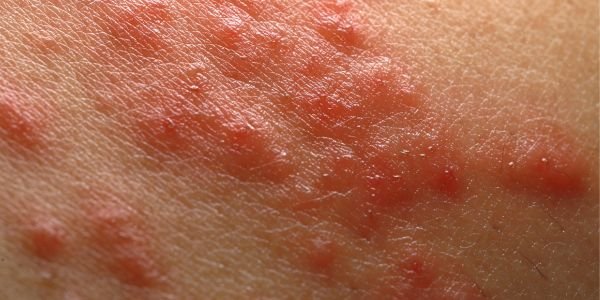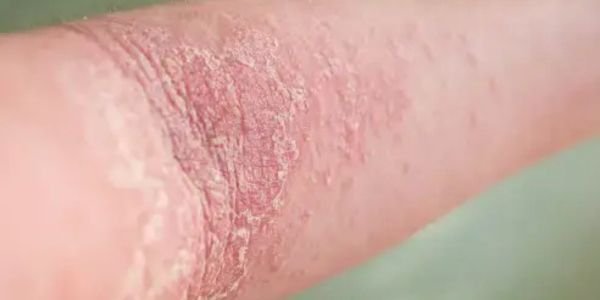Eczema Common Symptoms in Singapore
Eczema, or atopic dermatitis, is a common skin condition that causes itching, redness, and inflammation. If you’re living in Singapore and experiencing skin issues, understanding eczema is crucial. This guide will cover eczema common symptoms, the role of Singapore’s humidity, and how you can manage eczema effectively.
Eczema Common Symptoms
1. Itchy Skin
Persistent and intense itching is often the first and most noticeable symptom. It can become worse at night, leading to disrupted sleep and further skin irritation.
2. Red and Swollen Skin
Eczema causes red, inflamed patches, often appearing on the face, neck, and inside of elbows and knees.

3. Dry, Flaky Skin
Despite Singapore’s high humidity, eczema-prone skin can still become dry, flaky, and prone to cracking, which increases discomfort and the risk of infections.

4. Blisters and Oozing
Severe eczema can cause small blisters that may ooze fluid, adding to the irritation.

Managing Eczema in Singapore
Here are some tips for managing eczema effectively in Singapore
1. Control Indoor Humidity
While outdoor humidity is high, indoor environments can be controlled. Use air conditioning or a dehumidifier to keep indoor humidity between 30% and 50%. This range helps prevent excessive moisture and reduces mold and dust mite growth.
2. Clean Your Mattress Regularly
Dust mites thrive in humid climates like Singapore’s. Regular professional mattress cleaning can help remove allergens, reducing eczema triggers and improving sleep quality.
3. Keep Your Bedroom Clean
Frequent cleaning and using hypoallergenic bedding can minimize exposure to dust and allergens.
The Role of Food in Eczema
Food can also contribute to eczema flare-ups
1. Food Allergies
Common allergens like dairy, eggs, nuts, soy, and wheat can trigger eczema symptoms.
2. Food Sensitivities
Some individuals react to foods like tomatoes, chocolate, and fermented foods, which can worsen eczema.
3. Inflammatory Foods
Diets high in processed foods and sugar can increase inflammation, potentially making eczema worse. Focus on anti-inflammatory foods like fruits, vegetables, and omega-3-rich fish.
4. Nutritional Deficiencies
Even in sunny Singapore, a lack of Vitamin D from staying indoors too much can weaken the skin barrier, making eczema more likely.
When to See a Doctor
If your eczema symptoms don’t improve with home care, it’s important to consult a healthcare professional in Singapore. They can provide treatments like topical creams, oral medications, or light therapy.




